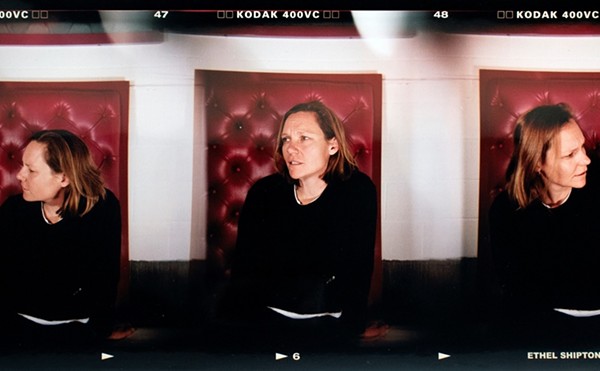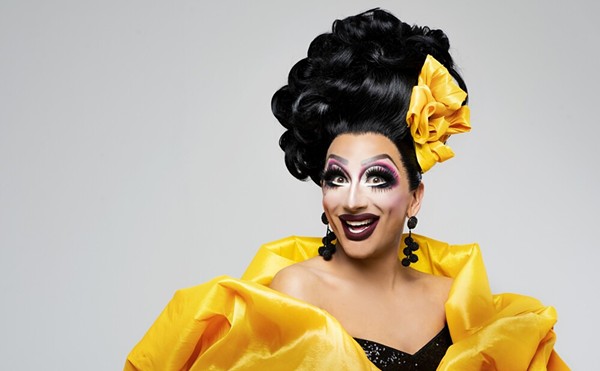I don’t know when I first met Raúl Salinas. I don’t even know if it was through his writings or in person. I guess I’ve known him for about as long as I’ve known Chicano Literature, which means since the early ’70s. I don’t know how many times we read at Floricantos and Canto al Pueblos together, or introduced one another, or talked books or politics together. But I do know that on the 13th of February, he left the physical world behind, and his face and words come at us now only on paper or in digital images or in pungent memories that seem to echo with a clear, prison-poet, rhythm-and-blues, Chican-
indio beat.
I was suffering about the third week of a throat-scratchy, lung-coughing, feverish Cedar Fever Grunge last Saturday, and the road between San Antonio and Austin was bitter cold, raining, and dark gray. My body said, “Cancel everything, I’m going to bed.” But the funeral of Raúl Salinas in Austin called me and more than 300 people from all over the country to crowd into a funeral-home chapel. It spilled over into the lobby, and the foyer, and the “listening room” on the side, and even into the parking lot. It was an odd crowd, so diverse that I could just imagine Raúl smiling his biggest pachuco, sinverguenza smile at the whole thing. University professors and state officials, street people and young students, musicians, architects, community organizers, mothers with babies sitting on the floor of the foyer, ex-gang members standing at the back of the room, literary scholars crowding in on the edges of the lobby. Just to say goodbye to this person who bore no title, no degree, no fancy position. Just a clear, lifelong
commitment to resistencia, activism, and justice.
You see, Raúl Salinas, with his gray Indian braids, faded pachuco tattoos, and books of poetry in his hands, had become a voice of wisdom and a guide to youth, a worker for gang intervention and reconciliation, a symbol of strength, and the definition of a gentle warrior. He was an indefatigable fighter for human rights, a voice for the American Indian Movement and a Xicanindio, as he called himself, a reminder of the constant connection between Chicano and Indio and all indigenous cultures. This in a time period when we had seen many of the “Egos” make speeches and then fade into the Establishment background. From the early days of the Chicano Movement, through the Opportunities and Opportunism of the late ’70s, through the Backlash of the Reagan ’80s, the Apathy of the ’90s, and the Divisiveness and Xenophobia of this decade, we’d seen a lot of people trade in their old protest signs for high-paying jobs or prestigious posts, become comfortably ensconced in Establishment silence, and spend their energies on building their own egos and fortunes. Raúl never did that. Raúl never forgot where he came from, or what this lucha was about.
Born in San Antonio, raised in the East Austin barrio, his young life was full of mistakes he would later work to prevent others from repeating. As a school dropout, an angry young man upset by the prejudice and social injustices of the 1950s, he headed off to California to work in the orchards, but soon found himself in prison on drug charges. The law was not easy on young Chicanos, and he ended up in Soledad State Penitentiary, but there he began to write. Exposed to the Beat Generation of poets, and to the echo upon echo of talented young Chicanos’ stories of injustice, the pieces of the puzzle began to come together. Raúl never glorified his time in prison. “I’m not proud of what I’ve done,” he’d say. But it always caused me pause to remember that while many of us saw our first literary efforts published in college newspapers, his were published in prison newspapers.
In Levenworth, he was founding editor of
Aztlan de Levenworth. His most famous poem, “Un Trip through the Mind Jail,” was first published there, and he spent 15 long years suffering through the so-called “correctional system.” Fortunately for the literary world, it was not time wasted. Finally, in 1972, he was released.
My memories of Raúl from the ’70s, the ’80s, and all the way up until last November, when the Esperanza Peace and Justice Center hosted a tribute to him here in San Antonio, have been consistent. Smiling, encouraging, never seeking the fame for himself, but always giving the credit to others: “Gracias to our young camaradas who put together this event.” “I am inspired by these
wonderful, courageous young voices.” “I give credito to our hermanas, without whom these courageous victories would not exist.” “I urge you to listen to the voices of our sisters and brothers from Central America” “I am grateful for the presence this evening of these fine students from Minnesota, who have come to study and learn by our side.” I never once saw him lash out in anger or ugliness against a person. It was only injustice that he hated, hatred itself that he fought against. He loved challenging young people, encouraging them to bloom, to claim their power, to fight for justice, to channel their anger in positive, creative ways, to seek peace ….
Whether in Geneva at the Human Rights Symposium or at Levenworth in a radical newspaper, whether in front of an auditorium of college students, or at Resistencia, the tiny activist bookstore he ran and often supported with his Social Security check — we always heard the same voice, saw the same sin verguenza smile quoting “the real revolution is love ….”
No, I will not remember last November as the last time I saw Raúl. I will remember seeing Raúl every time I see someone choose to use love and activism instead of divisiveness and self-interest. And everytime someone asks, “What will happen to these others if I don’t speak up?” instead of “What will happen to me if I do?” •
_____________________________________________________________________
 Do you have a fond memory of raúlrsalinas? Share it on our online forum at sacurrent.com
Do you have a fond memory of raúlrsalinas? Share it on our online forum at sacurrent.com
_____________________________________________________________________















